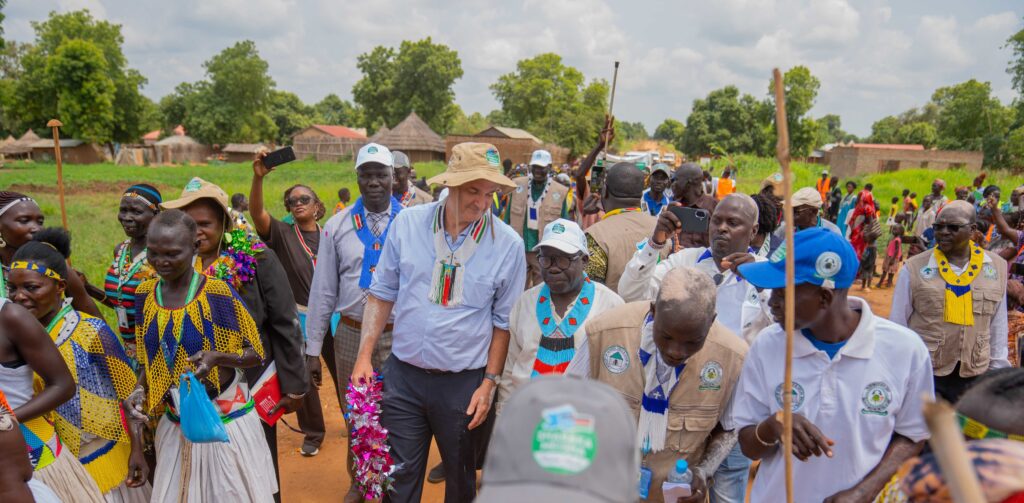A high-level Government of South Sudan and the World Bank Group delegation Tuesday visited the Torit County, Eastern Equatoria State, Shabaka Meisha Project—officially known as the Productive Safety Net for Socioeconomic Opportunities Project (SNSOP).
The delegation was led by the Gender, Child and Social Welfare Undersecretary, Esther Ikere, the World Bank Group Country Manager, Charles Undeland, the Shabaka Meisha Task Team Leader, Mukulish Arafat Simeonah Mule, and UNOPS Country Manager Petronella Halwiindi,.
The delegation also included the Minister for Parliamentary and Legal Affairs, Peter Gumbo, and the representatives of the Eastern Equatorial State Government.
The US$199 million Shabaka Meisha is a four-year World Bank-funded project that aims to benefit 157,500 vulnerable households across 20 counties, supporting them through Labor-Intensive Public Works (LIPWs) and Direct Income Support (DIS), to promote food security, restore livelihoods, and build community resilience.
The project also provides youth empowerment opportunities, in addition to strengthening the institutional capacity and social protection system led by the government.
The delegation observed the biometric cash transfers and inspected the ongoing LIPW activities, including the rehabilitation of community access roads and the climate-smart sub-projects such as farming. Beneficiary interactions with the delegation offered direct insights into the project’s impact on vulnerable households.
Ikere highlighted the project’s social value, noting: “As a nation emerging from conflict, social safety nets are essential to building the resilience of vulnerable households, especially those headed by single mothers, children, and the elderly.”
The Director of Agriculture Extension, the Rev Taban Elunai, described the project as timely and transformative.
“This project aligns with our national goals to ensure food and nutrition security, create jobs, and empower vulnerable people to participate in economic development,” he said.
Undeland commended the government’s commitment to owning the program.
“Shabaka Meisha is not only delivering much-needed support to vulnerable communities and households but also demonstrates how important it is for the Government to deliver to its citizens, not only with donor funding but with its resources on social expenditures,” he said
“The World Bank is committed to supporting South Sudan in building a robust social protection system that empowers its citizens and promotes sustainable development,” he added.
The visit underscored the importance of transparency, accountability, and learning from implementation to strengthen social protection systems across South Sudan.




